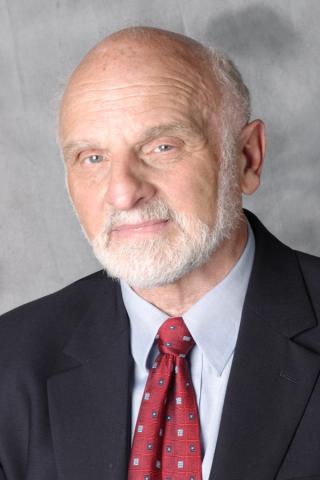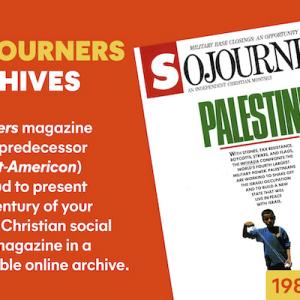
Walter Brueggemann, a Sojourners contributing editor, is professor emeritus at Columbia Theological Seminary in Decatur, Georgia.
Posts By This Author
History on the Margins
Sojourners are odd in a society where everything is settled.
Powered By The Spirit
A shoot will come up from the stump of Jesse; from his roots a branch will bear fruit.
The Spirit of the Lord will rest on him—
the Spirit of wisdom and of understanding,
the Spirit of counsel and of power,
the Spirit of knowledge and of the fear of the Lord—
and he will delight in the fear of the Lord.
He will not judge by what he sees with his eyes,
or decide by what he hears with his ears;
but with righteousness he will judge the needy,
with justice he will give decisions for the poor of the earth.
He will strike the earth with the rod of his mouth;
with the breath of his lips he will slay the wicked.
Righteousness will be his belt
and faithfulness the sash around his waist.
The wolf will live with the lamb,
the leopard will lie down with the goat,
the calf and the lion and the yearling together;
and a little child will lead them.
The cow will feed with the bear,
their young will lie down together,
and the lion will eat straw like the ox.
The infant will play near the hole of the cobra,
and the young child put a hand into the viper's nest.
They will neither harm nor destroy on all my holy mountain,
for the earth will be full of the knowledge of the Lord
as the waters cover the sea.
— Isaiah 11:1-9
AUTHOR'S NOTE: The following article was prepared before the outbreak of hostilities in the Gulf. Thus my comments were not directed to or informed by the Gulf crisis.
But this is a comment on a text—Isaiah 11:1-9—that has an enduring, persistent relevance. It takes no great imagination to see that Isaiah's poem impinges immediately upon our recent contemporary situation of aggression in which truth, well-being, and a viable "nature" are first-order casualties.
The prophet Isaiah and the book of Isaiah offer us literature that is marked in two important ways. On the one hand, it is literature that emerges in the midst of internal crisis and that is preoccupied with geopolitical upheavals. It is speech in a community (Jerusalem) that is under threat and is deeply bewildered. On the other hand, this literature in Isaiah revolves around a specific promise made in Jerusalem, made to the Davidic dynasty as an instrument for alternative policy and alternative possibility in the ancient Near East.
In the horizon in the book of Isaiah, geopolitical threat and promissory possibility are in deep tension. The key question is whether the promissory possibilities of God have a chance in the face of entrenched geopolitical realities. The book of Isaiah believes profoundly that God's promises will prevail in, with, and through geopolitical reality.
Note what an "unreal" long shot such a conviction is. I submit that only such a conviction can energize and authorize peacemaking.
For without such a passion and certitude, we will soon or late succumb to real politik. Thus the root of peacemaking is a theological possibility and not a socioeconomic possibility. That is, the chance for peace rests in the trustworthiness of God and the issue of God keeping faith with God's promises.
The text that authorizes this odd, subversive conviction has two features that are worth our noting. First, the text is poetry. It is not an argument about policy, but daring, inventive impressionistic rhetoric. Second, the text is poetry on the lips of God as a promise from God. That is, the speech of God is a beginning point for newness. The text, and every use of the text, is a political act as daring and as outrageous as was Martin Luther King Jr. when he said, "I have a dream."
Peace is a dream that is uttered first on the lips of God, a dream that speaks against all settled political reality, an act of imagination from the throne of heaven in which we are invited to participate. This text invites us to dream along after God in a certitude that the world judges to be outrageous.

